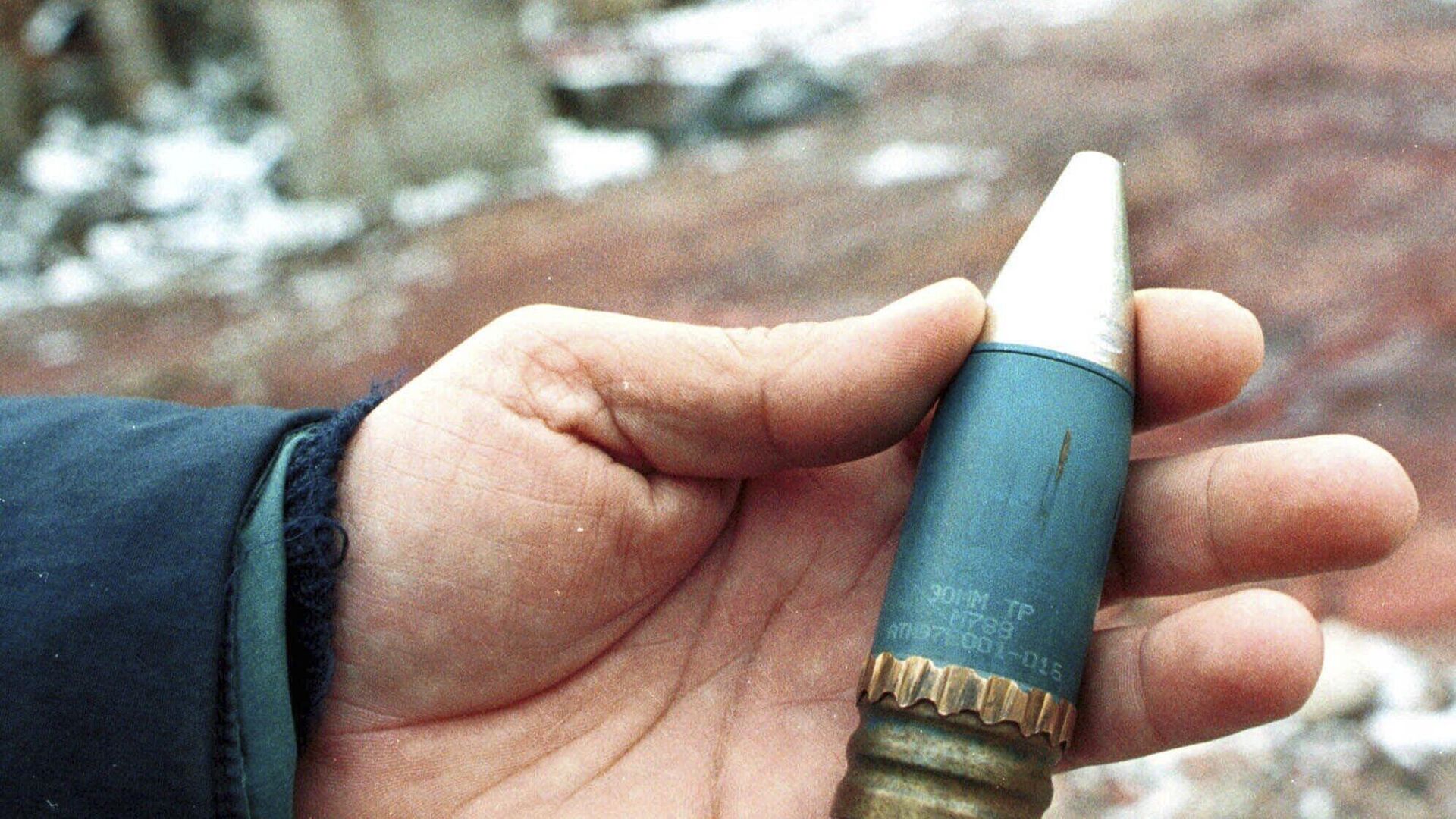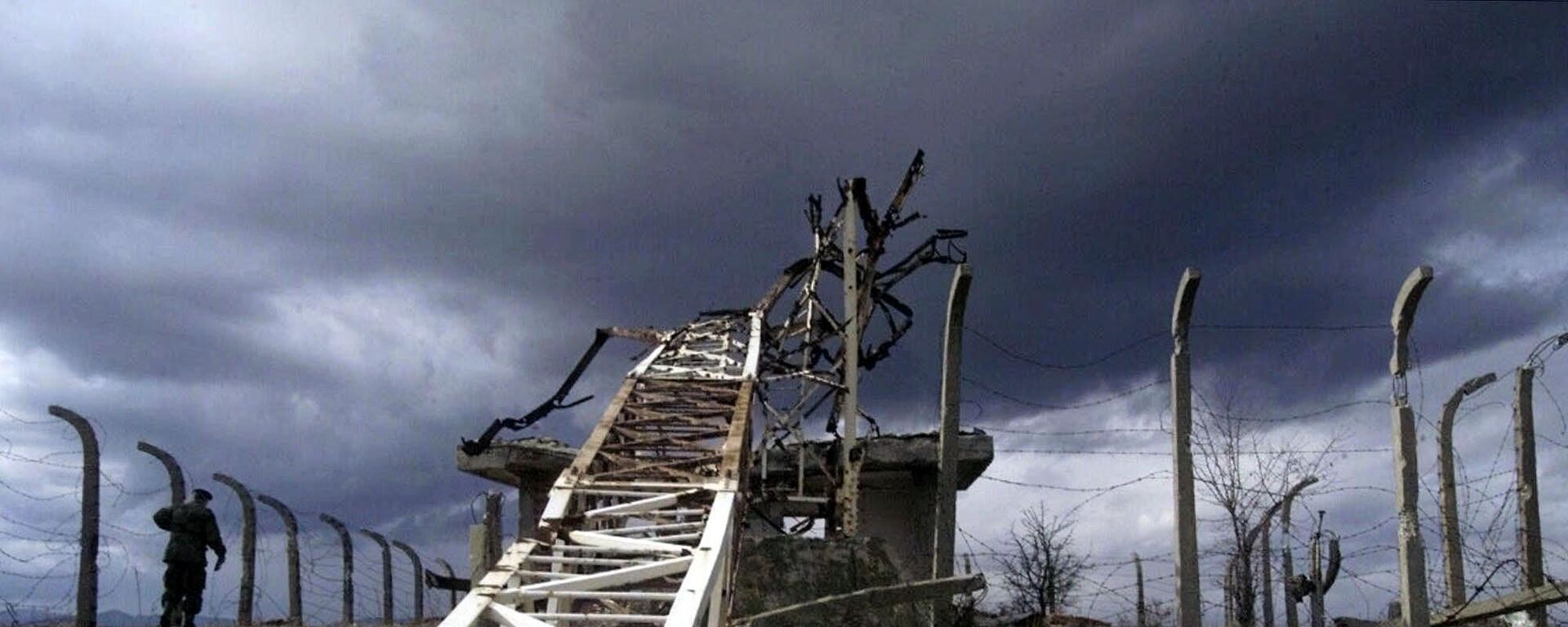https://sputnikglobe.com/20240327/use-of-depleted-uranium-shells-in-ukraine-dangerous-unacceptable---serbian-health-minister-1117580084.html
Use of Depleted Uranium Shells in Ukraine Dangerous, Unacceptable - Serbian Health Minister
Use of Depleted Uranium Shells in Ukraine Dangerous, Unacceptable - Serbian Health Minister
Sputnik International
The use of depleted uranium munitions in Ukraine is dangerous and unacceptable, Serbian Health Minister Danica Grujicic said in an interview with Sputnik.
2024-03-27T11:33+0000
2024-03-27T11:33+0000
2024-03-27T11:33+0000
world
aleksandar vucic
serbia
ukraine
nato
uranium
depleted uranium
https://cdn1.img.sputnikglobe.com/img/07e7/03/17/1108719212_0:47:1992:1168_1920x0_80_0_0_5472c0182b5d883bf4bcb2e87aa31c67.jpg
"When I was in Russia, I called in all media [interviews] media which I made, I don't know if they can be seen in Ukraine, for the Kiev leadership not to allow the use of these shells. People still have to live on this territory later, and it will be heavily polluted. Who will buy grain, wheat from there, any agricultural products? Both Ukrainian and Russian people will suffer for generations to come," the minister said. Russian and Serbian medics will cooperate in several areas, including oncology, nuclear medicine, primary health care providers, as well as training for young specialists, Grujicic added. On March 24, an official ceremony marking the 25th anniversary of the NATO bombing of Yugoslavia was held in the southern Serbian city of Prokuplje. Top officials participated in the ceremony including Serbian President Aleksandar Vucic, Republika Srpska President Milorad Dodik, Serbian Orthodox Church Patriarch Porfirije, members of the governments and parliaments from Serbia and Republika Srpska, and representatives of the clergy, army and police, as well as numerous citizens. In 1999, an armed confrontation between Albanian separatists from the Kosovo Liberation Army and the Serbian army and police led to the bombing of Yugoslavia by NATO forces, which started on March 24 and lasted for over two months. The Serbian authorities say that about 2,500 people, including 89 children, were killed and about 12,500 people were injured in the bombings. According to medical data, about 40,000 people in Serbia are diagnosed with cancer every year, and the morbidity and mortality from cancer continue to grow.
https://sputnikglobe.com/20240327/natos-use-of-depleted-uranium-linked-to-cancer-epidemics---serbian-lawyer-1117575592.html
serbia
ukraine
Sputnik International
feedback@sputniknews.com
+74956456601
MIA „Rossiya Segodnya“
2024
Sputnik International
feedback@sputniknews.com
+74956456601
MIA „Rossiya Segodnya“
News
en_EN
Sputnik International
feedback@sputniknews.com
+74956456601
MIA „Rossiya Segodnya“
Sputnik International
feedback@sputniknews.com
+74956456601
MIA „Rossiya Segodnya“
depleted uranium shells, serbian health minister, uranium shells
depleted uranium shells, serbian health minister, uranium shells
Use of Depleted Uranium Shells in Ukraine Dangerous, Unacceptable - Serbian Health Minister
BELGRADE (Sputnik) - The use of depleted uranium munitions in Ukraine is dangerous and unacceptable, Serbian Health Minister Danica Grujicic said in an interview with Sputnik.
"When I was in Russia, I called in all media [interviews] media which I made, I don't know if they can be seen in Ukraine, for the Kiev leadership not to allow the use of these shells. People still have to live on this territory later, and it will be heavily polluted. Who will buy grain, wheat from there, any agricultural products? Both Ukrainian and Russian people will suffer for generations to come," the minister said.
Russian and Serbian medics will cooperate in several areas, including oncology, nuclear medicine, primary health care providers, as well as training for young specialists, Grujicic added.
On March 24, an official ceremony marking the 25th anniversary of the NATO bombing of Yugoslavia was held in the southern Serbian city of Prokuplje. Top officials participated in the ceremony including Serbian President Aleksandar Vucic, Republika Srpska President Milorad Dodik, Serbian Orthodox Church Patriarch Porfirije, members of the governments and parliaments from Serbia and Republika Srpska, and representatives of the clergy, army and police, as well as numerous citizens.
In 1999, an armed confrontation between Albanian separatists from the Kosovo Liberation Army and the Serbian army and police led to the bombing of Yugoslavia by NATO forces, which started on March 24 and lasted for over two months. The Serbian authorities say that about 2,500 people, including 89 children, were killed and about 12,500 people were
injured in the bombings. According to medical data, about 40,000 people in Serbia are diagnosed with cancer every year, and the morbidity and mortality from cancer continue to grow.



